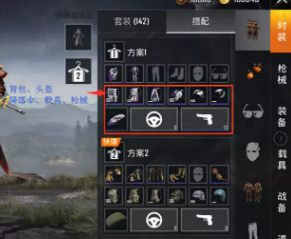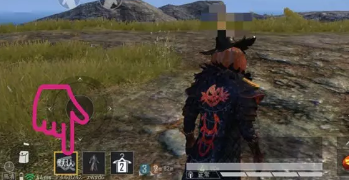crypto new currency- Top People also ask
Reuters survey: Most economists expect Britain to basically avoid the impact of Trump tariffs. According to the Reuters survey, most economists expect that US President-elect Trump will impose tariffs of less than 10% or not at all on goods imported from Britain next year, which will have little impact on the British economy. This is in stark contrast to a similar poll last month. Last month's polls showed that people were generally worried that the EU would be hit harder. Britain officially withdrew from the EU in 2020. Part of the reason why economists are more optimistic about Britain is that although one-fifth of Britain's total trade is with the United States, the proposed tariffs will focus on goods, and only one-third of Britain's exports are goods.Hong Kong Stock Exchange: Before the end of 2025, the system will be technically compatible with the T+1 settlement cycle. The Hong Kong Stock Exchange announced on December 12 that it will launch a plan to improve the post-trading service of the stock spot market. Starting from mid-2025, the Hong Kong Stock Exchange will gradually introduce new post-trading functions on its OCP. The new functions include automatic report downloading and information exchange, real-time transmission and processing of transaction data, related positions and reference data, and real-time delivery instruction pairing. As part of the whole platform upgrade plan, HKEx will ensure that its system is technically compatible with the T+1 settlement cycle by the end of 2025. However, what kind of settlement cycle will be adopted in Hong Kong in the future will be decided after market discussion.The Polish minister said that Poland hopes that more countries will participate in Baltic policing, the EU must spend at least 100 billion euros on national defense, and the conditions for sending Polish MIG -29 fighters to Ukraine have not been met.
After the emergency martial law storm, South Korea's financial industry suffered successively. After the emergency martial law storm in South Korea, South Korea's financial industry suffered successively, and the stock market fluctuated obviously. This week, it began to rebound slightly. South Korean media pointed out that the uncertainty of South Korea's political situation may put its international reputation under downward pressure. South Korea's Deputy Prime Minister and Minister of Planning and Finance, Choe Sang-mu, held an "emergency macroeconomic and financial symposium" on the 10th to discuss the dynamics of the financial and foreign exchange markets and the countermeasures. According to South Korea's Chosun Ilbo reported on the 9th, after the emergency martial law storm, the total market value of South Korea's stock market evaporated by 58 trillion won within three days, and more than 400 billion US dollars of foreign exchange reserves were also threatened. As the political struggle of "impeaching the president" continues, not only finance, but also retail, alcohol, real estate, semiconductor export and other aspects of the Korean economy have also felt the chill. South Korean media believe that if financial instability and the stagnation of the real economy, the economy may fall into crisis sharply. According to the "Foreign Securities Investment Trends in November" released by the Korea Financial Supervisory Authority on the 10th, foreign investors sold 4.154 trillion won in the Korean securities market last month and sold Korean shares for four consecutive months. South Korea's "Asia Daily" said on the 10th that as South Korea re-entered the presidential impeachment time, the uncertainty intensified, and it is expected that the net selling behavior of foreign investors will continue. Although South Korea's stock market rebounded on the 10th, the uncertainty of the political situation put its international reputation under downward pressure. South Korea's Chosun Ilbo published a commentary on the 10th, saying that Fitch and Moody's, among the world's three major credit rating agencies, have successively warned that if the storm after martial law is prolonged, South Korea's national credit rating may be negatively affected. (CCTV)After the emergency martial law storm, South Korea's financial industry suffered successively. After the emergency martial law storm in South Korea, South Korea's financial industry suffered successively, and the stock market fluctuated obviously. This week, it began to rebound slightly. South Korean media pointed out that the uncertainty of South Korea's political situation may put its international reputation under downward pressure. South Korea's Deputy Prime Minister and Minister of Planning and Finance, Choe Sang-mu, held an "emergency macroeconomic and financial symposium" on the 10th to discuss the dynamics of the financial and foreign exchange markets and the countermeasures. According to South Korea's Chosun Ilbo reported on the 9th, after the emergency martial law storm, the total market value of South Korea's stock market evaporated by 58 trillion won within three days, and more than 400 billion US dollars of foreign exchange reserves were also threatened. As the political struggle of "impeaching the president" continues, not only finance, but also retail, alcohol, real estate, semiconductor export and other aspects of the Korean economy have also felt the chill. South Korean media believe that if financial instability and the stagnation of the real economy, the economy may fall into crisis sharply. According to the "Foreign Securities Investment Trends in November" released by the Korea Financial Supervisory Authority on the 10th, foreign investors sold 4.154 trillion won in the Korean securities market last month and sold Korean shares for four consecutive months. South Korea's "Asia Daily" said on the 10th that as South Korea re-entered the presidential impeachment time, the uncertainty intensified, and it is expected that the net selling behavior of foreign investors will continue. Although South Korea's stock market rebounded on the 10th, the uncertainty of the political situation put its international reputation under downward pressure. South Korea's Chosun Ilbo published a commentary on the 10th, saying that Fitch and Moody's, among the world's three major credit rating agencies, have successively warned that if the storm after martial law is prolonged, South Korea's national credit rating may be negatively affected. (CCTV)Reuters survey: In December, the Bank of England decided to keep interest rates unchanged or cut interest rates by 100 basis points next year. All 71 economists surveyed during December 6-11 predicted that the Bank of England would keep its target interest rate unchanged at 4.75% at its meeting on December 19. Among the economists who predict the interest rate outlook until the end of 2025, about 54% (36 out of 67) expect to cut interest rates by 100 basis points by the end of next year, another 17 expect to cut interest rates by at least 125 basis points, and 14 expect to cut interest rates by at most 75 basis points.
Reuters survey: In December, the Bank of England decided to keep interest rates unchanged or cut interest rates by 100 basis points next year. All 71 economists surveyed during December 6-11 predicted that the Bank of England would keep its target interest rate unchanged at 4.75% at its meeting on December 19. Among the economists who predict the interest rate outlook until the end of 2025, about 54% (36 out of 67) expect to cut interest rates by 100 basis points by the end of next year, another 17 expect to cut interest rates by at least 125 basis points, and 14 expect to cut interest rates by at most 75 basis points.Mackler M, Governor of the Bank of Canada: (Regarding the potential tariff policy) We can't make policies based on what may happen. If the (US) tariffs are implemented as promised, it will cause serious damage to the Canadian economy.An explosion occurred in a tanker in Shenyang. Officially, one person was scalded. At about 7: 45 on December 12, an explosion occurred in a tanker on the north side of the intersection of Lane 166 of Fengyang Road and Xiangbai Road in Sujiatun District, Shenyang. It was preliminarily determined that the gas flash caused by the volatilization of the residual antirust paint in the tank was caused by the improper operation of the driver, and the relevant departments were on the scene at the first time to deal with it. One person was scalded by the accident, and he was sent to the hospital for treatment, which was not life-threatening. The specific reasons are under further investigation. (released by Sujiatun)
Strategy guide
12-14
Strategy guide 12-14
Strategy guide 12-14
Strategy guide 12-14
Strategy guide
12-14
Strategy guide
Strategy guide 12-14
Strategy guide
12-14
Strategy guide 12-14
Strategy guide





























